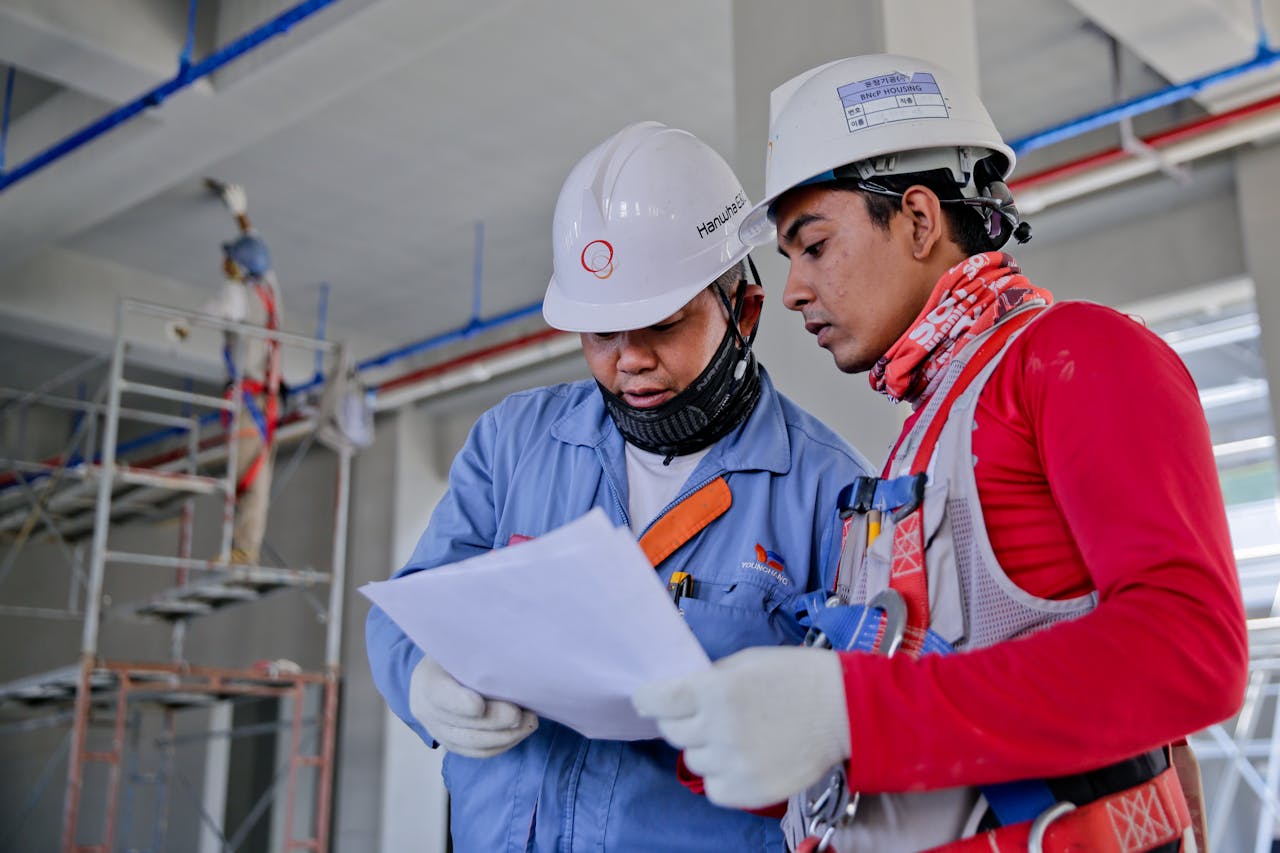Embarking on a commercial construction project is no small feat. It demands a blend of vision, meticulous planning, and the right partnership. One key element—choosing the right contractor—can be the linchpin to transforming your architectural dreams into concrete reality. Whether it’s erecting an office building, industrial facility, or residential high-rise, the choice of contractor will significantly impact the project’s success, budget, and timeline.
While the quest to find the perfect contractor is fraught with questions and considerations, arming yourself with the right knowledge can make this journey less daunting and more exciting. With this in mind, let’s look at critical factors to consider when choosing a contractor for your commercial construction project:
Experience and Expertise
The cornerstone of any successful commercial construction project is a contractor with a robust portfolio of experience and expertise. An experienced contractor doesn’t just bring knowledge of construction methodologies but also navigates zoning laws, permits, and regulatory compliances with ease. A deep dive into their past projects can offer insights into their capability to handle complex tasks and their expertise in specific types of construction. It’s crucial to choose a contractor whose experience aligns with the scale and scope of your project, ensuring they can meet your expectations and overcome potential challenges.
Safety First
Safety in construction cannot be overstated. The way a contractor treats safety is a significant indicator of their professionalism and operational standards. It’s essential to ask the right questions regarding safety to understand a contractor’s commitment to creating a safe work environment. For instance, are new employees required to complete an OSHA 10 online course before setting foot on a job site? Additionally, inquire about their safety records, policies, and procedures. A contractor who prioritizes safety minimizes the risk of accidents and delays, ensuring smoother project execution.
Beyond certifications and training, the company’s safety culture speaks volumes about its operational integrity. A strong safety culture is characterized by regular safety meetings, clear communication channels for reporting hazards, and a proactive approach to risk management. Assessing how a contractor integrates safety into their daily operations can provide peace of mind and a marker of their reliability.
Financial Stability
Financial stability is a critical aspect to consider when selecting a contractor for your commercial construction project. A financially secure contractor ensures that your project will not be stalled due to financial mismanagement. Investigate their financial practices by asking for references from banks or financial institutions, and consider their history of managing budgets and resources effectively. A contractor with a solid financial foundation is more likely to complete your project on time, within budget, and with the requisite quality standards.
It’s also beneficial to understand their billing practices and payment terms. Transparent and fair financial practices are indicative of a contractor’s integrity and reliability. This not only helps in planning your project’s financial aspects but also builds a foundation of trust between you and the contractor, which is invaluable for the success of any large-scale construction project.
Communication and Project Management
Effective communication and robust project management are indispensable traits of a reliable contractor. A contractor who maintains clear, consistent communication ensures that you are kept in the loop at every stage of the project. This includes providing updates, addressing concerns, and being responsive to changes. Look for a contractor who employs a structured project management approach, utilizing modern tools and technologies to track progress, manage timelines, and coordinate tasks efficiently. A contractor who is adept at managing both the technical aspects of construction and the communication needs of their clients can significantly enhance the overall project experience.
Reputation and Client Feedback
A contractor’s reputation in the industry and feedback from previous clients are invaluable sources of information. Researching and reading reviews, testimonials, and case studies can provide insights into their work ethic, quality of work, and client satisfaction levels. Don’t hesitate to ask for references and follow up with them to ask about their experience working with the contractor. A reputable contractor will be proud to showcase their accomplishments and connect you with past clients. This due diligence can help you gauge the reliability and quality you can expect for your project.
Adaptability and Problem-Solving
Construction projects often encounter unforeseen challenges and changes. A contractor’s ability to adapt and solve problems is crucial to keeping a project on track. Evaluate how prospective contractors have managed difficulties in past projects and their approach to flexibility and innovation. Contractors who demonstrate a proactive approach to problem-solving, rather than a reactive one, can save time and resources, ensuring that your project adapts seamlessly to any challenges that arise.
Sustainability and Environmental Consideration
With growing awareness of environmental impact, selecting a contractor who practices sustainability in construction methods is becoming increasingly important. This includes efficient use of resources, waste reduction, and opting for eco-friendly materials and technologies. A contractor with a strong commitment to sustainability can help ensure that your project not only meets current environmental standards but also contributes positively to your environmental and social responsibility goals.
Final Thoughts: Building Success Together
Choosing the right contractor for your commercial construction project is a pivotal decision that sets the tone for the entire endeavor. By prioritizing experience and expertise, safety, financial stability, communication, reputation, adaptability, and environmental consideration, you can select a partner who aligns with your vision and values. The right contractor not only brings your architectural vision to life but also ensures a collaborative, efficient, and rewarding construction experience. Remember, the goal is to build not just a structure but a lasting relationship that paves the way for future success.
































